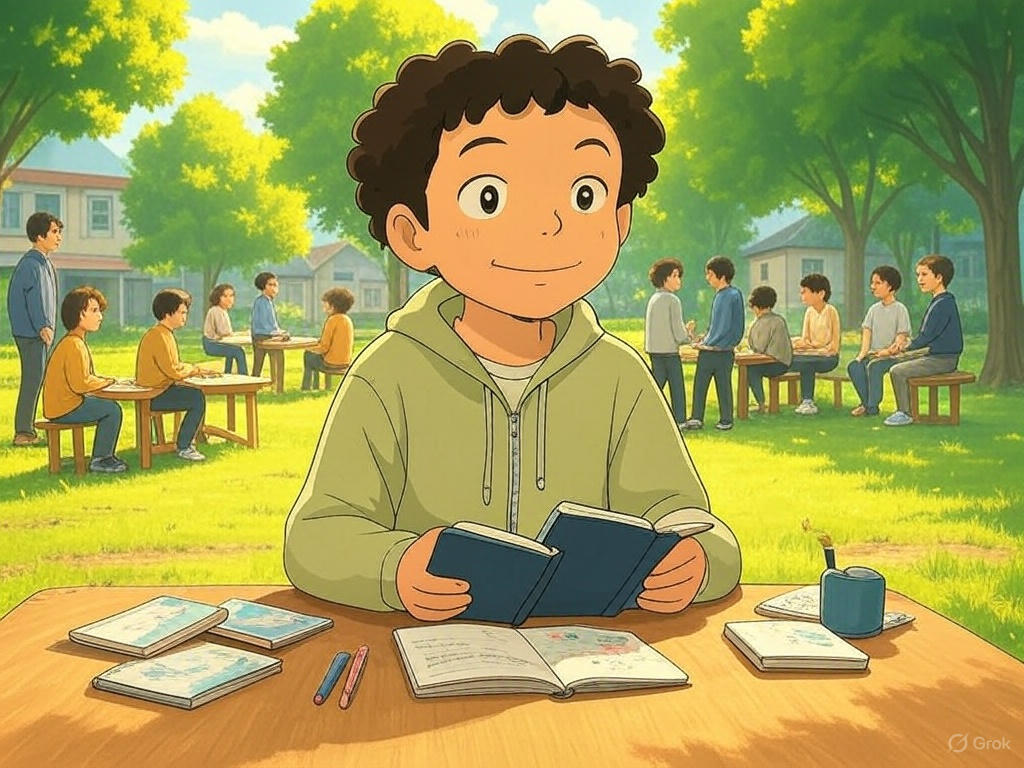Our thoughts
Adolescence – Shape It with Skills, Not Screens
Adolescence – Shape It with Skills, Not Screens
Mrs. Noor Ayesha, Founder, Vice-Chairperson & Managing Director of IQRA International School

Introduction
Growing up, my family never had a television at home. My father, despite being an active politician who arguably needed a TV for news and updates, never kept one—not even when we reached college. He firmly believed that television would ruin our intellect, distracting us from learning, reading, and real-life experiences or skills. Looking back, I am deeply grateful for that decision.
Today, as a first-generation Harvardian, I see how screens—not just televisions, but smartphones and social media—are robbing children of their intellect, creativity, and potential. And as a parent, I’m determined to ensure that my own child doesn’t fall into the same trap.
With the recent release of the Netflix mini-series “Adolescence”, this conversation has become more relevant than ever. The film starkly depicts how the teenage years—the most crucial years for self-discovery, skill-building, and growth—are being consumed by digital distractions. If we, as parents, don’t take charge, our children’s adolescence will be shaped by screens instead of skills.
Catch Them Young – Start Building Their Profile from Age 11
When I applied to Harvard, I wasn’t just competing with students who had good grades. I was up against applicants who had strong, well-rounded profiles—filled with leadership, volunteering, extracurricular achievements, and real-world problem-solving experiences. No top university or future employer is impressed by a child’s social media following—they want to see action-takers, problem-solvers, and changemakers.
A strong profile includes:
✅ Volunteering & Social Work – Builds leadership, responsibility, and compassion.
✅ Extracurricular Activities – Develops discipline, teamwork, and creativity.
✅ Internships & Work Experience – Provides real-world exposure and confidence.
✅ Public Speaking & Leadership Roles – Strengthens communication and decision-making.
✅ A Passion for Reading & Learning – Expands knowledge and critical thinking.
✅ Entrepreneurial & Project-Based Learning – Encourages innovation and financial literacy.
A child who is actively engaged in these areas won’t have the time or energy for screens. This is exactly what I am doing with my own son, who is on the threshold of entering his teens. Instead of handing him a phone, I am guiding him to dream big, build his portfolio, and shape his future. At the end of a day filled with real learning, skills, and experiences, he is exhausted—in a good way. He doesn’t need a phone to scroll mindlessly; he needs a good night’s sleep to recharge for another productive day.
Lessons from “Adolescence” – The Price of Digital Addiction
The consequences of unchecked screen time are alarming:
❌ Self-worth is based on online validation, not real achievements.
❌ Friendships exist more in group chats than in real life.
❌ Screen addiction replaces deep thinking, problem-solving, and creativity.
❌ Children feel entitled to technology rather than earning real experiences.
The saddest part? Many parents give in to guilt when their children say:
🗣️ “But all my friends have a phone!”
🗣️ “I need it for studying and group discussions!”
🗣️ “You’re being unfair!”
But here’s the truth:
✔ Most academic discussions can happen in person or on a shared family device.
✔ A personal phone is more often a distraction than a study tool.
✔ Feeling ‘left out’ now is temporary—long-term success is what matters.
By saying NO to unnecessary smartphone access, we are actually protecting our children’s mental health, focus, and future potential. Instead of guilt, parents should remind themselves:
✅ You’re giving them something better—real-world experiences, confidence, and independence.
✅ You’re setting boundaries that will benefit them in the long run.
✅ You’re teaching them the value of self-discipline and delayed gratification.
The movie “Adolescence” serves as a clear warning: If we don’t take control now, our children’s futures will be shaped by screens, not by skills.
The Power of Reading – The Best Alternative to Screens
Unlike social media, which conditions children for short attention spans and superficial engagement, reading:
✅ Builds deep thinking and concentration.
✅ Enhances vocabulary, comprehension, and communication skills.
✅ Encourages imagination and creativity.
✅ Provides wisdom and lessons beyond formal education.
Instead of giving in to screen addiction, parents must bring books back into their children’s lives by:
• Setting a daily reading habit before bedtime.
• Creating a reading-friendly home environment with easy access to books.
• Leading by example—let your child see you reading.
• Discussing books together to make reading more interactive.
A child who loves reading will never stop learning—and that is their greatest advantage.
Final Thoughts: Raising Leaders, Not Passive Screen Consumers
Today, as a parent and an education leader, I believe we must catch them young—from age 11 onwards, we must actively push them into profile-building activities. Instead of giving them screens to keep them entertained, we must give them purpose, goals, and real-world challenges.
So to every parent out there struggling with guilt or peer pressure about smartphones—stand your ground. Your child doesn’t need a phone to succeed; they need engagement, responsibility, and the right opportunities.
Let’s raise leaders, thinkers, and changemakers—not passive screen consumers. Because the future belongs to those who act, learn, and lead—not those who scroll endlessly.
You may also like